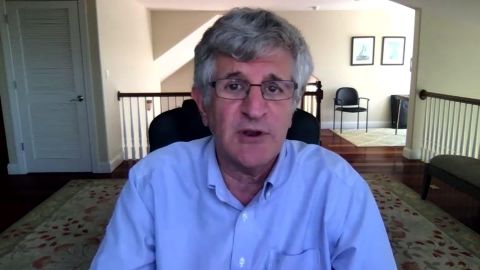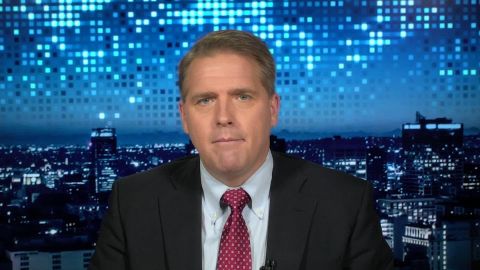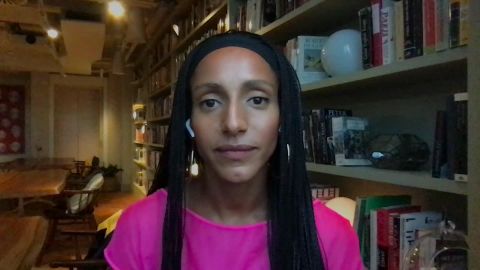Read Transcript EXPAND
CHRISTIANE AMANPOUR: Just tell me what you think about the idea of this convalescent plasma therapy, and, you know, the emergency use authorization of it.
DR. PAUL OFFIT, PROFESSOR OF PEDIATRICS, CHILDREN’S HOSPITAL OF PHILADELPHIA: Well, certainly we’ve been using convalescent plasma since diphtheria antitoxin the late 1800. So, there’s plenty of experience with convalescent plasma. And it makes sense actually that if you have very high tighters of neutralizing antibodies in plasma and you give it early enough an infection when the virus replication is still an important part of the disease process that it could, is some extent, work. Now, it’s not going to be a wonder drug but I think it could be another sort of part armamentarium along with others remdesivir, dexamethasone and others. The problem is, is that the studies that have been soi far haven’t shown that. You know, it’s hard to do those studies and control for those studies. You want to make sure when you do those studies that the only variable is receipt of convalescent plasma so that those two groups are all alike in all other aspects in terms of how sick they are, in terms of whether they received other drugs, so you can isolate the effect of that variable, and it just hasn’t been done. So, I think what happened then, within the past week, is people like Dr. Anthony Fauci and Dr. Francis Collins from NIH said the data aren’t there. And so, we think that the FDA should not approve this through EUA, and that’s where things stood until last night, when Donald Trump stood up and said, this is a breakthrough product and we’re going to do it. And so, when Stephen Heim (ph) got up there and then said he’s going to give FDA approval, you wonder whether there were data we haven’t seen. What there a new study that showed that, in fact, it did work, and there wasn’t. So, really, what’s happened, I think, is just the FDA, it appears, have gotten bullied into doing something that at least initially they didn’t want to do.
AMANPOUR: Let me just play this little bit of what he said, not last night but today, as he made an appearance at the convention, the slimmed-down sort of convention in North Carolina. Let’s just play this.
(BEGIN VIDEO CLIP)
TRUMP: Yesterday, convalescent plasma, you saw remdesivir, you’ll soon see vaccines pouring out years ahead of what they would have been under a more traditional — let’s use that term because it’s nicer — a more traditional administration.
(END VIDEO CLIP)
AMANPOUR: So, look, he’s talking about, you know, pumping this out years ahead of a more traditional administration. But what does that mean? I mean, he’s saying he’s giving it all, he wants it out there whether it’s a vaccine or convalescent plasma. You’ve talked about the substance of it, but what about the fast tracking of it?
OFFIT: Well, to be honest with you, I think the typical time it takes to make a vaccine is 15 to 20 years, but vaccines usually aren’t made like this one in the midst of the pandemic where more than a hundred companies are trying to make it and billions and billions of dollars are poured into trying to make it. So, we only had the virus, you know, within the past year, and I think it is likely that by the beginning of next year we will have a vaccin.
About This Episode EXPAND
Christiane speaks with Scott Jennings about what another four years of President Trump would bring. She also speaks with Dr. Paul Offit about convalescent plasma therapy and with Afua Hirsch about the consequences of Britain denying its imperial past. Michel Martin speaks with Beth Fukumoto about the racism that led to her resignation from the Republican Party.
LEARN MORE



